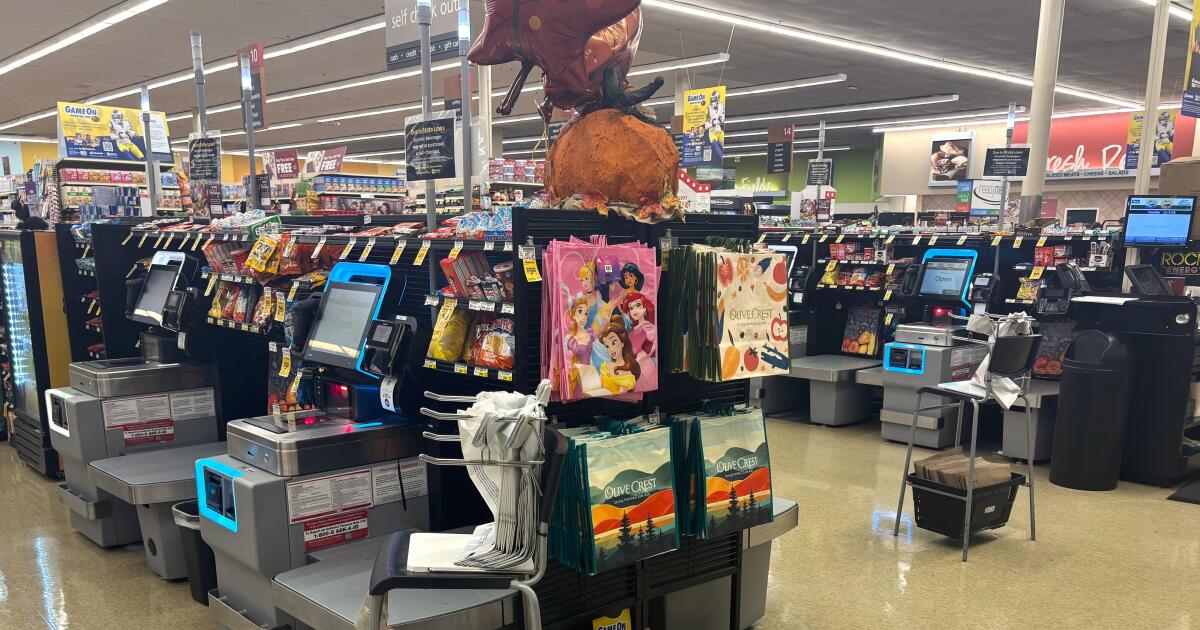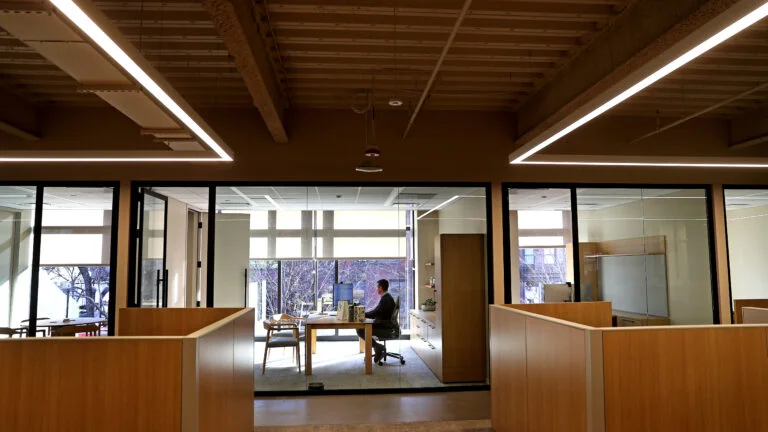Copyright Los Angeles Times

Interceding on behalf of grocery and retail drugstore workers fed up with too many self-checkout stands and the complications they engender, Costa Mesa officials this week supported the idea of regulating the use and operation of automated kiosks citywide. The issue was brought before the City Council during a meeting in March, during which store employees and residents raised concerns about inadequate staffing levels and an uptick in retail thefts associated with unmanned checkstands. Councilmembers expressed an interest in exploring the matter more deeply and, in researching the topic, looked to an ordinance adopted in September by the city of Long Beach, the first of its kind in the nation. Drafted with assistance from the United Food and Commercial Workers Local 324, the “Safe Stores are Staffed Stores” law applies to grocery and retail pharmacies over 15,000 square feet and certain big box stores. It requires one dedicated employee be staffed for every three checkout kiosks and limits the number and items that can be scanned there to 15. Products in locked cases and alcohol purchases cannot be rung up in a self-checkout lane, and at least one in-person checkstand must be operating before automated lanes can be opened, according to the legislation. Jay Barkman, a Costa Mesa government affairs manager who researched the topic and presented his findings at Tuesday’s City Council meeting, said an ordinance similar to Long Beach’s would apply to 14 local grocery stores and five retail drugstores. Barkman visited those establishments, reporting that while drugstores offering self checkout mainly complied with the proposed staffing ratios it was unclear if employees had additional work responsibilities. Of the city’s qualifying grocery stores, only six of the 14 had automated checkout stands. “Those stores all had more than three stations, and during my visit, it appeared they had only one employee assigned,” he said. “Therefore, those six stores would be out of compliance with an ordinance mandating self-checkout requirements similar to the Long Beach ordinance.” Barkman noted that, in the nearly two months since the law was enacted, confusion has arisen about how its mandates are to be enforced and penalties imposed. The ordinance cites $100 fines for violators, increasing by $100 per day up to a $1,000 maximum penalty per instance. “There’s no definition in the ordinance as to a limit of who could file the claim,” he said. “Would it be just an employee potentially experiencing having to man more than three stations? Is it every employee who is manning a cashier [station]? Is it just the customers who are in line, or all the customers in the store?” Costa Mesa city leaders took testimony from grocery store workers and community members who favored a local law and a California Grocers Assn. representative opposed to regulating self-checkout stands. Resident Matt Walters, a Vons employee and UFCW 324 member, said workers feel overwhelmed and overworked due to understaffing and having to monitor too many self-checkout stands. “Regular checkstands handle one customer at a time. Those working self-checkout must monitor five, six, seven, even nine customers at a time,” Walters said. “A ratio of three checkout stands to one employee is a common sense answer.” Others described a prevalence of shoplifting in automated lanes, although Costa Mesa police reported the incidence of retail theft from grocery stores declined from 2024 to this year, while those at drugstores increased by just seven instances. UFCW Local 324 political director Derek Smith told the council studies indicate grocery stores earning from $500,000 to $1 million per week in sales lose roughly 3.5% in revenue through inventory loss. While self-checkouts increase that likelihood, he said, minimal staffing allocations could correct that. Tim James, a government affairs representative for the California Grocers Assn., took a different view, calling employees’ self-described encounters with thieves “non-existent.” “Employees are fully prohibited from engaging in retail theft situations. There are also several state laws that protect employees,” he said. James accused city staff of disrespecting grocers by holding Tuesday’s discussion without having responded to a letter from the organization six months earlier asking that business owners be involved in the process. Mayor Pro Tem Manuel Chavez, however, made a motion for staff to draft an ordinance for the council’s consideration; Councilmember Loren Gameros seconded the proposal. Councilmembers Jeff Pettis and Mike Buley opposed, saying it was not the place of government to tell private businesses how they should operate. “I heard a lot of legitimate concerns addressed tonight — those should be addressed between the collective bargaining unit and ownership,” he said. “To have a city government inject itself in the middle of employer-employee relations, I just think it’s a bridge too far.” But Councilmember Arlis Reynolds said the council commonly imposes conditions on business owners, regulating things such as operating hours, activities, noise and security measures on behalf of the public good. She questioned the impact of automation on the city’s workforce.



